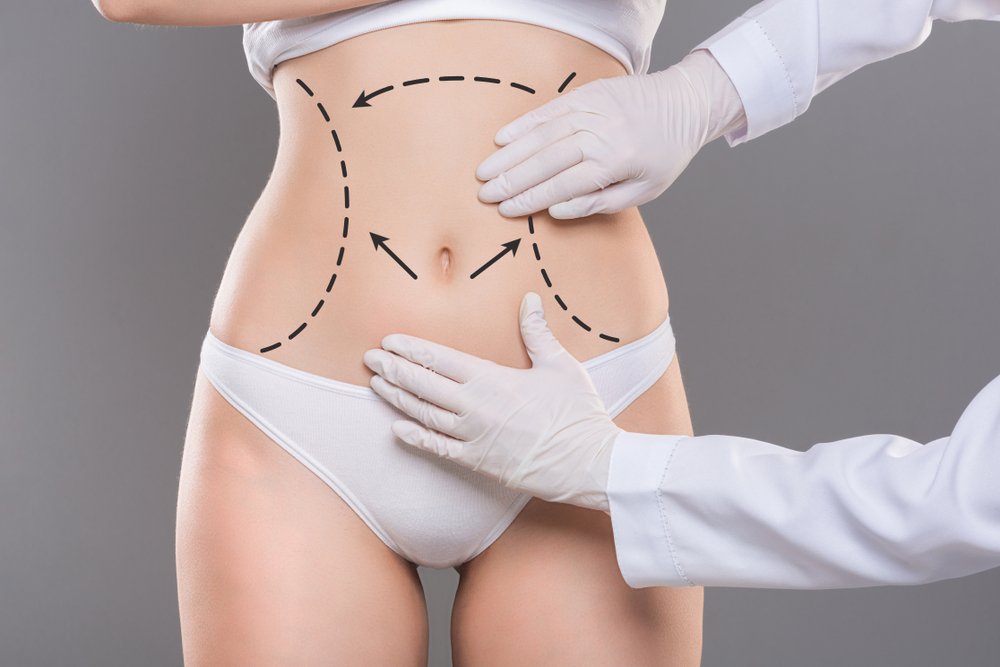Preparing for liposuction surgery in Riyadh—or anywhere—involves a set of critical steps designed to ensure a safe procedure, minimize complications, and promote the best possible results and recovery.

It is crucial to follow the specific, detailed instructions provided by your certified plastic surgeon in Riyadh, as these may vary based on your health and the extent of the procedure.
Here is a general guide to pre-operative preparation for liposuction:
1. Medical and Lifestyle Adjustments (2-4 Weeks Before)
CategoryInstructionWhy It's ImportantSmoking & NicotineSTOP COMPLETELY at least 2-4 weeks before surgery (ideally longer) and throughout recovery. This includes cigarettes, vapes, and patches.Nicotine severely restricts blood vessels, leading to poor blood flow and oxygen delivery, which drastically delays healing and increases the risk of complications, infection, and poor scarring.MedicationsSTOP all medications and supplements that can increase bleeding, usually 7-14 days prior to surgery.These thin the blood and can cause excessive bleeding during and after the procedure.Common Items to Stop: Aspirin, Ibuprofen (Advil, Motrin), Naproxen (Aleve), NSAIDs, Vitamin E, Fish Oil/Omega-3s, Garlic supplements, Ginkgo Biloba, and most herbal remedies.AlcoholSTOP alcohol consumption at least 1 week before surgery.Alcohol can interfere with anesthesia, increase bruising and bleeding risk, and cause dehydration.WeightBe at or near your target, stable weight.Liposuction is a contouring procedure, not a weight-loss solution. Significant weight fluctuations before or after can compromise your final results.2. Physical and Dietary Preparation
CategoryInstructionWhy It's ImportantHydrationDrink plenty of water in the weeks leading up to surgery.Good hydration is essential for skin elasticity, overall health, and a smoother recovery.DietFocus on a healthy, balanced diet rich in lean protein (for tissue repair), fruits, and vegetables (for vitamins and antioxidants). Minimize processed foods, excessive salt (which causes swelling), and refined sugars.A strong immune system and proper nutrition support faster healing.Sun ExposureAvoid sun exposure and sunburn on the areas to be treated.Sun-damaged skin may complicate the procedure and the healing of incisions.Lab TestsComplete all blood work and medical clearances requested by your surgeon/clinic in a timely manner.This ensures you are healthy enough for the procedure and anesthesia.3. The Day/Night Before Surgery
CategoryInstructionWhy It's ImportantCleansingFollow your surgeon's specific instructions, which often include showering with a special antibacterial soap (like Hibiscrub) the night before and the morning of surgery to minimize the risk of infection.This significantly reduces bacteria on the skin.FastingAdhere strictly to the NPO (Nil per os) instruction, which means nothing by mouth (no food, water, gum, etc.) for the specified period (typically 6-8 hours) before anesthesia.Failing to fast is extremely dangerous as it can lead to complications with anesthesia.What to WearWear loose, comfortable clothing (like a button-up shirt or zip-up hoodie and loose-fitting sweatpants) and comfortable slip-on shoes.This prevents rubbing on the treated areas and makes dressing easier after the procedure.TransportationArrange for an adult to drive you home and stay with you for the first 24 hours.You will be groggy from anesthesia and cannot drive yourself or take a taxi alone.4. Prepare for Your Recovery at Home
The better prepared your home is, the easier your recovery will be in Riyadh.
- Recovery Area: Set up a comfortable resting area (near the bathroom) with supportive pillows, your phone/charger, remote control, and all necessities within easy reach.
- Post-Op Supplies: Have your prescribed pain medication, antibiotics, and compression garments (if already provided) ready. Stock up on gauze pads and mild antibacterial soap.
- Food: Prepare or buy easy-to-digest, nutritious meals in advance, as your mobility will be limited for the first few days. Have stool softeners on hand, as anesthesia and pain medication often cause constipation.




Comments